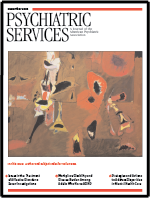Brain Work: Stories
Brain Work: Stories, a collection of 14 short stories, is Michael Guista's first fictional work. Guista was the winner of the 2004 Katharine Bakeless Nason Prize for Fiction awarded by Middlebury College and the Bread Loaf Writer's Conference. In this book he explores the regions of ambiguity and perception that permeate the mental and physical lives of the many characters introduced in these stories.
Guista looks at many types of relationships: between a psychiatrist and a patient, a husband and wife, parents and children, and a teacher and his students. His subject matter is human relations—self to others and self to self. The "brain work" of the characters is visible to the reader through a narrative sharing of the characters' inner lives. The author's writing style is somewhat dispassionate; his language simply and effectively supports the complexity of his subject matter.
The first story is "Filling the Spaces Between Us." On the surface, it concerns the relationship between a psychiatrist and his wife. The psychiatrist is the narrator. His wife, a horse lover, suffers a brain injury while caring for their horses. As the story progresses the reader may find a subtle shift in what the story is about—or not about. The meaning of love and the experience of despair may be at the heart of this story, yet a question of one's relationship with one's self lingers. The soul of the psychiatrist appears to be up for grabs.
"Down to the Roots" is about a mother, a father, and their two young sons. The family is struggling, and the father is an alcoholic. There is a rhythm to this story like a classic blues song: you have a feeling you know what the resolution or turnaround is going to be, yet there is an element of revelation when you get there. The story includes an act of violence that resolves in an ambiguous manner, leaving the reader to reflect on the meaning of the transpired act and the possible reason for it.
The final story, "The Year of Release," involves an English professor with Tourette's syndrome. It is about the relationship between the professor and a standout student who experiences increasingly debilitating epileptic seizures. Both characters engage in a give-and-take dialogue about contradictions, with the class serving as a stage and the other students as an audience of sorts. Eventually the student undergoes treatment that extracts the richness of thought and assertion that attracted the attention of the professor in the first place. The question of the value and quality of life is raised, and who is to judge?
I would recommend Brain Work: Stories to readers of Psychiatric Services on the basis of its subject matter and professional bent as well as the quality of the writing. The book is especially recommended to those who work with large numbers of long-term patients with treatment-refractory illness.
Mr. Kellogg is director of community-based care services and state facilities and interim director of the New Hampshire Office of Medicaid Business and Policy.



